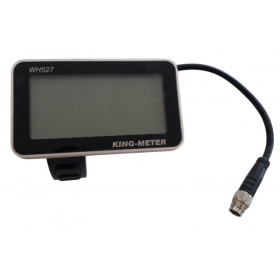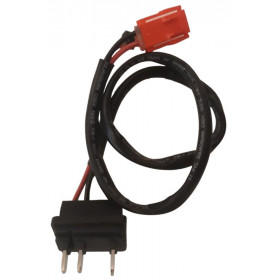-
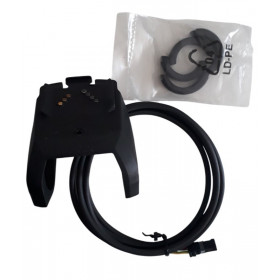 New product -10%Bosch e-bike computer mount
New product -10%Bosch e-bike computer mount- €37.79
- €41.99
-
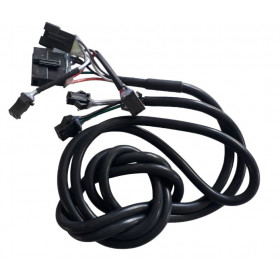 New product
New product -
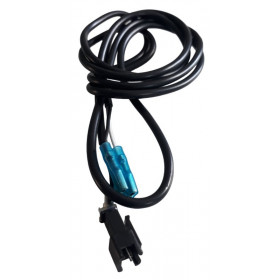 New product
New product -
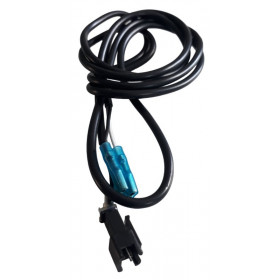 New product
New product -
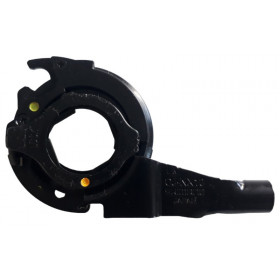 New product -35%Cassette joint set Shimano Nexus CJ-NX10
New product -35%Cassette joint set Shimano Nexus CJ-NX10- €7.80
- €12.00
-
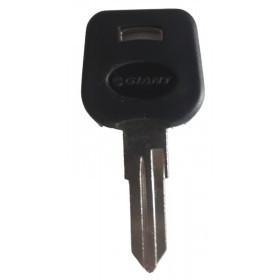 New product
New product -
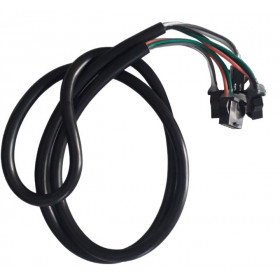 New product -25%Giant electric bike driver display cable
New product -25%Giant electric bike driver display cable- €15.74
- €20.99
-
-
-
-
Showing 1-11 of 11 item(s)
The electric bike battery is a central element of any electric bike (VAE) which is part of the electric bike parts, influencing the autonomy, power and lifespan of the bike. Understanding the key features and specifics of the different batteries available will help you choose the one that best suits your needs.
1. Technical characteristics of an electric bike battery:
a. Capacity (in Wh)
The capacity of an electric bike battery is measured in Watt hours (Wh) and determines the range of the bike.
Formula: capacity = voltage (V) x current (Ah)
Common examples:
300 Wh: For short or urban journeys.
500 Wh: Ideal for medium or hilly journeys.
750 Wh and more: For long distances or mountain outings.
b. Voltage (in V)
Voltage influences motor power:
36 V: Standard for urban and leisure electric bikes.
48 V: Offer more power, ideal for electric mountain bikes or cargo bikes.
c. Cell Type
Lithium-Ion (Li-Ion): Standard for its light weight, high energy density and extended lifespan.
Lithium Iron Phosphate (LiFePO4): More durable and resistant to overheating, but heavier.
Nickel Metal Hydride (NiMH): Rare, replaced by lithium.
d. Autonomy
Autonomy varies depending on:
Battery capacity.
The weight of the cyclist and the bicycle.
The terrain conditions and the assist power used.
e. Cooldown
2 to 8 hours: Depending on the capacity and type of charger used.
Fast chargers help reduce this time, but can affect battery life.
f. Lifetime
Recharge cycles: A battery lasts on average between 500 and 1000 complete cycles, or 3 to 5 years of regular use.
After 500 cycles, capacity may decrease by 20-30%.
2. Renowned brands for electric bike batteries:
a. Bosch
Features :
Capacities from 300 to 750 Wh.Integrated (PowerTube) or external (PowerPack) batteries.
Intelligent management system to maximize service life.
Specificities:
Compatible with Bosch motors.Fast charging and high energy efficiency.
For whom?
Cyclists looking for reliable performance for urban journeys or sporting outings.b. Shimano Steps
Features :
Capacities from 418 to 630 Wh.Compact and lightweight, suitable for urban and gravel bikes.
Specificities:
Optimization for Shimano transmissions.Good autonomy management over long distances.
For whom?
Users of urban or gravel electric bikes equipped with Shimano groupsets.c. Yamaha
Features :
Capacities from 400 to 600 Wh.Robust batteries for mountain bikes and cargo bikes.
Specificities:
Compatible with Yamaha PWseries engines.Excellent resistance to extreme temperatures.
For whom?
Electric mountain bike enthusiasts or cyclists in difficult conditions.d. Panasonic
Features :
Capacity from 500 to 750 Wh.Integrated or external batteries depending on the model.
Specificities:
Known for its high quality cells.Good reliability over time.
For whom?
Cyclists looking for a durable, high-performance battery.e. Samsung SDI
Features :
Varied capacities (400 to 800 Wh).Cells used by many brands of electric bikes.
Specificities:
High energy density for extended autonomy.Fast charging and excellent thermal management.
For whom?
Ideal for users looking for balanced performance.f. Specialized (Turbo Batteries)
Features :
Capacities from 320 to 700 Wh.Built-in batteries with a sleek design.
Specificities:
Optimized for Specialized Turbo engines.Intelligent management system to maximize autonomy.
For whom?
Cyclists using Specialized bikes for gravel, urban or mountain biking.g. Mahle (Ebikemotion)
Features :
Compact batteries, often 250 Wh (with possibility of extension).Specificities:
Lightness and perfect integration for road and gravel bikes.For whom?
Cyclists looking for a clean look and reduced weight.3. Points to Consider When Choosing
Type of Bike:
Urban bike: Battery 300-500 Wh sufficient.Mountain bike or cargo bike: 500-750 Wh battery for more power and autonomy.
Compatibility:
The battery must be compatible with the engine and frame of your bike.Autonomy Required:
Determine your use: daily commute, long hikes or leisure.Weight and Design:
Built-in batteries offer a more aesthetic look but can be more expensive.Brand and Warranty:
Choose brands recognized for their reliability and after-sales service.Conclusion
Electric bike batteries vary in capacity, weight, and compatibility with motors. Brands like Bosch, Shimano, and Yamaha dominate the market with their reliability and innovation, while Panasonic and Samsung SDI offer high-performance cells for high-end or versatile models. To choose a suitable electric bike battery, evaluate your needs in terms of autonomy, power and budget while taking into account the type of terrain you use.

